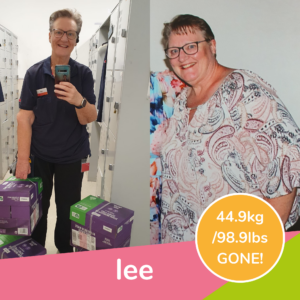
The Heavy Cost of Australia’s Weight Problem
If you’re finding it difficult to lose weight you’re not alone. Based on the AHIW BMI index, 67% of the Australian population are reportedly overweight with 31% classified as obese. Carrying excess weight isn’t just uncomfortable. It can lead to a multitude of serious health problems such as heart disease, diabetes, cancer, kidney disease and sexual dysfunction, and it can drastically effect self-esteem. It can also be fatal. The latest reports show that BMI’s of 30-35 can cause people to die 2-4 years earlier than people in a healthy weight range and BMIs of 40-45 can cause premature death 8-10 years earlier.
The financial cost was $11.8 billion in 2018 and it is estimated to rise to $87.7 billion by 2032 if nothing is done to stem this epidemic.
Why Traditional Diets are Failing to Help
So, why are traditional methods of weight loss failing to provide a solution, and why is intermittent fasting an increasingly popular choice for so many?
The reason is actually quite straightforward: most people find daily restrictive eating for long periods of time too hard and end up giving in and binge eating. Even if they do manage to persevere and get to goal weight, they put it back on again when they return to their original habits. Excessive exercise is another option however it’s also too difficult to sustain for many due to people being time-poor, too unfit to maintain motivation or due to a physical inability, often, ironically, caused by being overweight. Additionally, without a change in diet, weight loss will likely be minimal and cease without continuation.
Why People are Turning to Intermittent Fasting
Intermittent fasting is different to other methods of weight loss. Food-wise, it does not require participants to diet every day, hence it’s nickname ‘part-time dieting’. As such, binge-eating is averted because intermittent fasting is actually a diet that’s designed to be ‘broken’. For example, if you are on the 5:2 method of fasting, you simply restrict calories two days a week then eat normally the other five days. On those five days people don’t tend to binge eat because they’ve only been dieting a short period of time and don’t feel the need to lash out.
As for exercise, while experts encourage participants to be active for good health, it’s primarily fasting that will bring them the desired weight loss results. Most of all, people tend to be able to maintain intermittent fasting more effectively than other methods of weight loss.
“People love intermittent fasting because it’s easy,” says Dr Krista Varady from the University of Illinois in Chicago. “People need to find diets that they can stick to long term.”
The Fastest Way to Lose Weight?
There are faster ways to lose weight than by intermittent fasting but such methods require extremely low calorie consumption every day which, for most, is unsustainable. Worst still, there’s a reason they are often called ‘crash diets’. The rapid results from these radical methods can lead to extreme hunger, causing dieters to inevitably binge when they break the rules. This, combined with the negative effect such practices have on metabolism, can often result in people regaining more than they lost.
Intermittent fasting is the fastest way to lose weight overall because the results are consistent and far more people tend to keep it off and maintain their weight loss. Participants lose an average of .5 – 1kg per week, sometimes more if they combine the methods, as outlined below. It isn’t a diet so much as an adaptation to eating habits that becomes a part of their ongoing lifestyle.
The Best Way to Keep Weight Off?
Once participants reach their desired weight loss goal via intermittent fasting they can maintain it by simply reducing their fasting times/days. On the 5:2 method, this could essentially mean eating normally 6 days a week with 1 fasting day kept as a ‘cleanse’. Many people report never gaining weight again after making this their ongoing plan.
Long-Term Health Benefits?
Aside from the advantages of the weight loss itself, intermittent fasting can provide multiple health benefits. It actually supports a healthy metabolism and evident based findings show it reduces insulin levels, facilitates fat burning and muscle gain, induces cellular repair, improves heart health and protects against disease, including reducing the risk of some cancers.
Most Popular Methods
The most popular methods of intermittent fasting include:
- 5:2 or the 2-Day method: whereby participants restrict their calories to 500 (women) and 600 (men) 2 days a week, then eat normally the other 5 days
- 3:4 or the 3-Day method: whereby participants restrict their calories to 1000 (women) and 1200 (men) 3 days a week, then eat normally the other 4 days
- 16:8 or the Part-Day method: whereby participants restrict their calories to 1600 (women) and 2000 (men) most days of the week, eating within an 8-hour window only
- Alternate day fasting: eating normally every other day then reducing calories by 25% on the days in-between
Some people like to speed up their results by combining methods, e.g. 3-Day and Part-Day.
Real Life Case Studies
Here are some real life case studies who have done intermittent fasting with SuperFastDiet and enjoyed ongoing results.
Lee
Prior to making the decision to do something about her escalating weight, Lee’s self-esteem was at an all-time low and it was drastically affecting her health – to the point she could barely do her job. Then she discovered intermittent fasting.
‘Before I found SuperFastDiet and intermittent fasting, I was really just existing from day to day. My life felt like I was on a treadmill and I was going nowhere fast. I had no energy or strength. I just couldn’t seem to pull myself out of this downward spiral I found myself in.’
Lee is an operations manager in stationary and the constant lifting the job entailed was making life even harder.
‘I was carrying around the equivalent of four cartons of paper. To put that in perspective, I couldn’t even lift two – let alone bend down without breathlessness. I had terrible bursitis in my leg that caused me constant pain. I needed to lift my leg to get in the car and I couldn’t do up my shoelaces without difficulty.’
Lee signed up for a 5-day challenge with SuperFastDiet and, after only three days in, she found fasting so easy to stick to she enrolled in a 16-week course.
‘I’ve never looked back from that point on. The way of life with intermittent fasting was a game-changer, although I knew losing the weight was only part of my battle. I had to make sure that I got my mind sorted so I could continue to maintain it.’
Lee says losing weight has been an emotional rollercoaster ride of self-discovery and personal growth, and the whole experience has put her life in perspective. Her weight loss over 10 months has been fast but she feels this is a permanent lifestyle for her.
‘I’ve lost the equivalent of four cartons and one ream of paper. I can’t believe I carried that around with me every day for I couldn’t tell you how many years. I feel so light and have so much energy now. My bursitis is all but gone and I jump in the car with ease and do up my shoelaces pain free now. It’s life-changing.’
Lee has gone from a size 26 and is now a size 14-16. Her total weight loss to date is 44.9kg.
Rosemary
Rosemary had tried many different ways to lose weight but she kept regaining whatever kilos she lost.
‘Before I started this way of life I didn’t particularly like myself very much,’ Rosemary admits. ‘I felt unseen, hidden away and irrelevant.’
Rosemary says that worrying about what she ate became a negative rollercoaster, constantly occupying her mind, and her self-esteem began to plummet when she couldn’t seem to take control and get healthier and happier.
‘I tried all sorts of different diets,’ Rosemary says. ‘At 58 years-old, I thought I knew what I should and shouldn’t eat – problem was I didn’t stick at anything and lost heart quite quickly. I would drop some weight and then put it all back on again.’
Even though she describes herself as ‘very social’ and always out and about, Rosemary got to the point where she didn’t really want to socialize anymore.
‘You don’t want to be the one who’s sitting at the table and eating the rabbit food on the side while everyone else is enjoying their glass of wine and the beautiful meal.’
‘I was generally very unhappy with my weight, the way I looked and particularly how I felt. Whenever I was going out somewhere, I struggled to find the right clothes. I felt so low and just wanted to hide away.’
Eventually this reached a critical point. ‘I withdrew from all the social outings and activities that I would normally be involved in,’ she says. ‘Essentially, I was depressed.’
It was at this stage of her life that Rosemary saw an ad for SuperFastDiet and decided to try the 3-Day method.
‘I could see from people’s experience, and by looking at the concept, that the flexibility was there. That idea really appealed.’
‘I was actually surprised to find how easy it was to have 1000 calories and not feel hungry. Turns out it’s a ton of food. There are a LOT of things you can fit in that!’
Rosemary weighed herself after her first week and ‘was rather shocked to see that I’d gotten results.’
Encouraged, Rosemary tried another week, then another.
‘The more I got into the program, the more I started to realise that I could enjoy all the food I still love on my ‘diet days off’. Consequently I began to believe this would work, that I wasn’t giving up this time.’
‘I found it flexible, achievable, and more of a way of life. Not like I was on a diet at all. It was…easy.’
Rosemary attributes the big difference between 3-Day fasting and other diets as ‘not sacrificing all the time’.
‘On other diets you think ‘I can’t, I can’t, I can’t’, which makes you want that chocolate or glass of wine more.’ It’s been a game changer for her that now, on fast days, she simply thinks to herself ‘I can have that tomorrow.’
‘You don’t feel that level of restriction. It becomes much more achievable…and also when you’ve done it, you feel fantastic! You wake up the next morning and you don’t even miss what you didn’t have. You just feel good, you looked after yourself. And then you continue on that momentum.’
‘You don’t feel like you’ve had to give up anything. You’ve gained confidence, you’ve gained self-love. I feel happy with the way I look.’
‘Having discipline on my fast days and flexibility on my non-fast days makes intermittent fasting perfect for a socializer like me. I love the 3-Day method as it is easily manageable, and I love my weekends. I never feel that I am going without. Monday to Thursday are non-alcohol days and then on weekends I still enjoy my glasses of champagne.’
‘In my late fifties, I am the healthiest I have been since I was in my late thirties. I am mentally and physically ready to take on what the next 20 years has to bring. I’m living my life to the fullest!’
Rosemary turns 59 years-old in a few week’s time and is proudly wearing a bikini. Originally a size 12, she is now between a size 6 and a size 8.
Want to find out more about intermittent fasting with SuperFastDiet? Click here and get started today!


